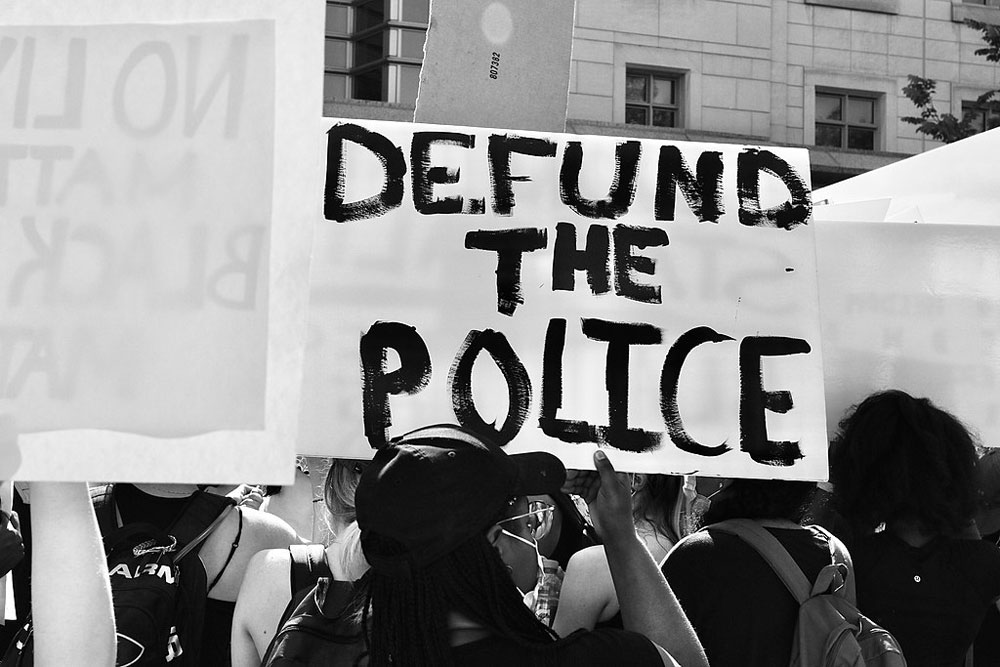
June 11, 2020; Texas Tribune
Advocates are calling for the defunding of the police precisely at a time when localities must consider cuts somewhere, given declining revenues. This would be a happy coincidence, save for the fact that advocates hope to see the money reallocated to make communities safer and more prosperous.
Ordinarily, city residents would have been looking at cuts to such things as libraries and recreational facilities—or at tax increases, which would be a pretty hard sell in this damaged economy. Instead, as money becomes more scarce, some cities are moving to reconsider the size and shape of budgets for public safety. (The HEROES Act would have freed up a cool $1 trillion for local governments, but it’s stalled in the US Senate and doesn’t look to be moving anytime soon.)
The city of Houston projects a COVID-related deficit of $169 million for this coming budget year. Bennett Sandlin, executive director of the Texas Municipal League, says, “I can’t speak for any particular city, but I think it’s going to be a deeper, far deeper recession than what we saw 12 years ago.”
“This is not going to go away very quickly,” Sandlin adds. “You’ll see the biggest hit next [fiscal] year. And then I think you’ll see a continued hit to the budget the following year, so it will be at least two to two and a half years.”
Similar holes to the one Houston anticipates are opening up all over Texas, with San Antonio’s current budget projected to decrease by $200 million. Usually, public safety funding is protected somewhat from cuts at times like these, but this year may be different, given the public sentiment about what is and isn’t working in their communities.
Sign up for our free newsletters
Subscribe to NPQ's newsletters to have our top stories delivered directly to your inbox.
By signing up, you agree to our privacy policy and terms of use, and to receive messages from NPQ and our partners.
The Kinder Institute for Urban Research, which a little less than two weeks ago published a report analyzing potential financial scenarios in Dallas, Houston, and San Antonio, predicted public safety expenditures would remain relatively safe even as parks were closed. Will that all change now?
“These three cities, like most local governments, are going to be in enormously difficult financial trouble if they don’t get a bailout from the feds, which right now looks like they’re not going to,” says Kinder’s Bill Fulton. “I think we’re staring down the barrel of two or three years at least of very, very difficult and hard times for cities in Texas.”
That’s true for cities all over the United States. In Chicago, for instance, not only has the police department’s budget grown every year for the past eight years to its current level of $1.78 billion, but $153 million of the city’s budget is held aside for police misconduct settlements.
“As we have created this austerity situation where poverty has increased and the gaps between the rich and the poor have increased, we’ve also created this really huge police department that has lots of military equipment and a lot of surveillance,” says Chicago alderperson Rossana Rodriguez-Sanchez. “I don’t think it’s a coincidence.”
She advocates getting started by removing Chicago police officers from public schools and ending work on a new $100 million police academy.
“Imagine the kind of support services we can have if we divest resources from punishment to funding basic human needs,” she tweets.—Ruth McCambridge













